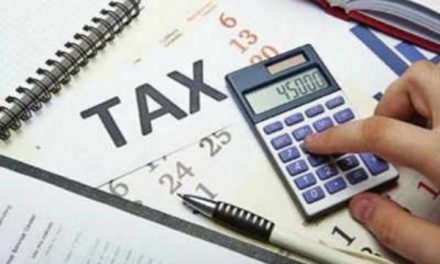The Union government is making a renewed push to get states on board to levy a uniform road tax for personal vehicles across the country, a senior government official said.
The move is expected to bring relief to automobile buyers, while also helping protect the revenue of states as some consumers tend to purchase vehicles in states with lower taxes, resulting in a loss of revenue for those with higher taxes.
The panel has proposed the ‘one nation, one permit, one tax’ system, and has recommended an early passage of the Bill, in what is being seen as a shot in the arm for the Ministry of Roads. Road Transport and Highways Minister Nitin Gadkari said he expects the bill to be passed in the current session.
In a move aimed at curbing rampant corruption at the RTOs, the panel has recommended registration of vehicles by the dealers and non-production of vehicles. It has also been recommended body wearable cameras for traffic policemen and RTO officials enforcing the Motor Vehicles Act for checking corruption and reducing arbitrariness by enforcement agencies.
The panel said the bill in no way infringes upon the rights of the states, as apprehend by some state governments. The Committee also recommended that the long distance buses should invariably have inbuilt toilets.
Currently, each state has a different formula for calculating the tax rate, which leads to an anomaly in the final amount. For instance, in Delhi, the road tax is calculated based on the make, model, engine and seating capacity of a vehicle. For four-wheelers less than 1,000kg, the tax is more than ₹3,800. However, in Arunachal Pradesh, it is calculated on the basis of the sale price of a four-wheeler, which is 2.5% or ₹6,250 for a vehicle costing ₹2.5 lakh, and 6.5% or ₹1.3 lakh for a car costing over ₹20 lakh.
A group of ministers on transport set up by the roads ministry in 2018 had recommended a uniform road tax structure for vehicles across states and that the tax is charged based on the invoice price of a vehicle. For all personal vehicles, the tax should be 8% for a vehicle costing under ₹10 lakh, 10% for a vehicle costing between ₹10 lakh and ₹20 lakh and 12% for a vehicle costing more over ₹20 lakh.
On its part, the automobile industry has been pushing for a uniform road tax structure along the lines of the unified tax regime under GST as any arbitrary increase in road taxes by certain state governments results in higher vehicle prices, adversely impacting sales.
This is a significant development for the auto industry since it was our long-standing demand. Apart from the poor state of the economy, increase in road taxes by states had impacted sales of vehicles in the past year. This is a concern for most of the manufacturers and the Union government has now started the process again to get the states on board,” said an executive at an automaker.
A recent meeting between the Centre and state transport ministers to discuss the uniform road tax structure saw most of the ministers agreeing to the proposal, the executive said, requesting anonymity.
The automobile executive cited above said that though the Centre is trying to get states on board for a uniform road tax or sharing vehicle registration data on Vahaan website, it will depend on the states as road tax features on the state list. “The central government can only try to do this through consensus and if it happens, it will be good for the auto industry at a time when sales are at an all-time low.”
“At present, few states in India have higher road tax compared to the others, and taxes in such states might get reduced if there is a common road tax structure, though it’s too early to say how much this will help the industry at this point,” said Mitul Shah, vice president of research at Reliance Securities.











